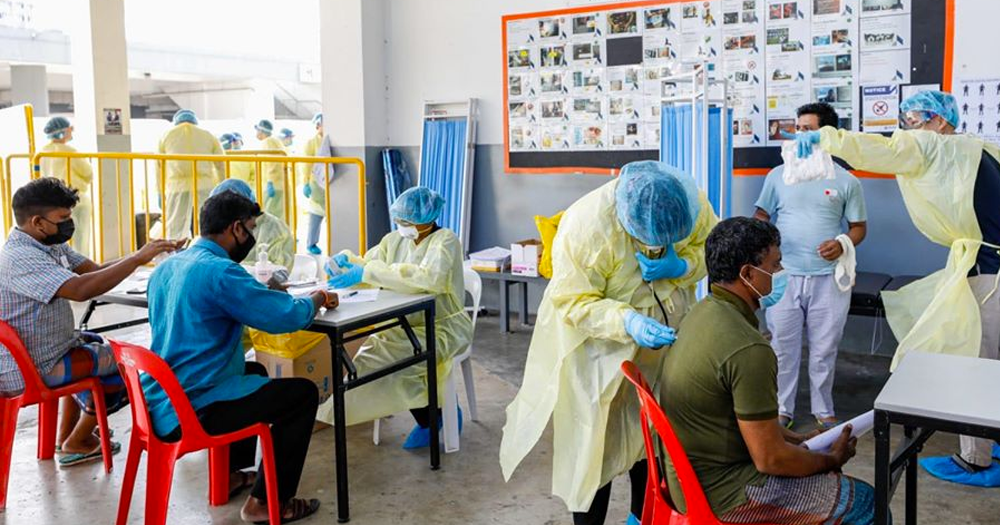40,000 migrant workers who were dormitory residents have been cleared of Covid-19 infections, says Manpower Minister Josephine Teo.
Thousands rehoused
About 12,000 migrant workers who are essential workers who already have been tested and cleared.
They were previously moved out of the dormitories and into other short-term accommodation.
Separately, about 20,000 migrant workers have recovered and are being rehoused at other temporary sites.
Another 8000 are living in the existing dormitories, either having tested negative or have been discharged after recovery.
60 dormitories to receive a cleared status
The Inter-Agency Taskforce will give the first batch of 60 dormitories a "cleared" status from June 1, 2359 onwards.
The 60 dormitories include three purpose-built dormitories and 57 factory-converted dormitories and Construction Temporary Quarters. (CTQs)
A dormitory would receive a "cleared" status if every resident in every block of that dormitory has been cleared of having Covid-19 infection.
To facilitate the safe return of work or to work for the workers, enhanced medical support and enhanced health surveillance will be put in place to enable early detection of any infection.
The task force has also worked with dormitory operators and employers to implement safe working, living and rest day measures.
Workers will also be made to use the access code feature on the SG Work Pass App, to allow the workers, employers and dormitory operators to know who can exit the dormitory to work.
Workers need to have a green status and green code, meaning that they have met all the conditions to go back to work.
These conditions include having a "cleared" dormitory and having approval to resume operations.
Raising standards in dormitories
Teo also spoke on planning ahead for the long term, including raising standards in dormitories.
Given Singapore's land constraints, dormitories are a "practical approach" to housing some of our migrant workers, and that is "unlikely to change" said Teo.
"The dormitories allow migrant workers to be in the company of friends - to cook, to eat, to relax, and even pray together," she said.
What needs to change, however, are the specifications and management of the dormitory, as well as the "daily living habits" of the dormitory residents, she added.
Teo said:
"The changes will be necessary to better protect the workers from the widespread transmission, and to strengthen the resilience of the dormitories against risks, such as those posed by Covid-19."
Such changes mainly centre on three areas - firstly, strengthening dormitories in their resilience against pandemic risks; secondly, working on the assumption that the risk of infection will be present in a dormitory; thirdly, safe living practises as a new way of living in the dormitories.
Top image via Lawrence Wong's Facebook post
If you like what you read, follow us on Facebook, Instagram, Twitter and Telegram to get the latest updates.
